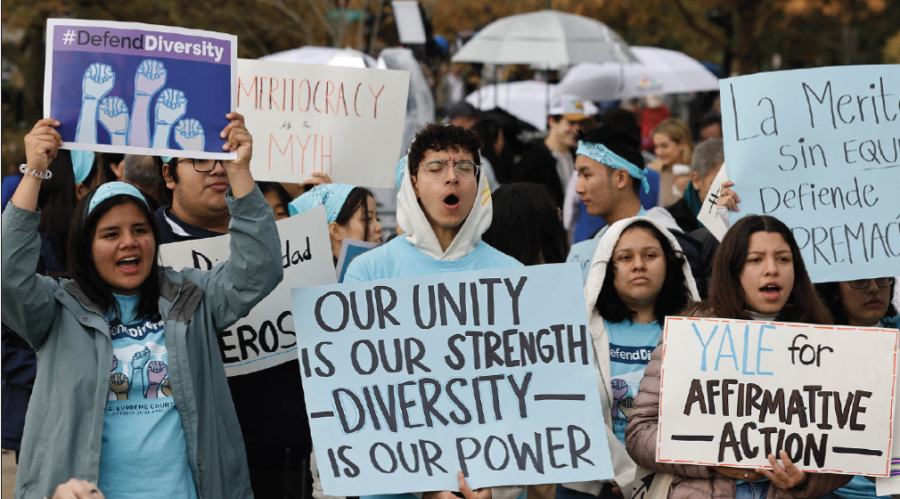Affirmative action under fire in court
November 7, 2022
Universities across America could begin to see a significant change in their admissions process. The Supreme Court is currently hearing arguments in two cases that surround the topic of affirmative action.
Affirmative action was first introduced as a college admissions tool in 2003. The policy allows universities to take a prospective student’s race into account when deciding on admission.
According to Ian Millhiser from Vox, the Supreme Court is likely to overturn this policy in the coming weeks forcing colleges to not consider race in their admissions process.
Supporters of affirmative action argue that if the policy is overturned, it could lead to a decrease in diversity among higher-education institutions.
‘“I thought that part of what it meant to be an American and to believe in American pluralism is that actually our institutions, you know, are reflective of who we are as a people in all our variety,” Supreme Court Justice Elena Kagan said.
On the other hand, those opposed to affirmative action believe that America has outgrown the policy and race is no longer a significant factor when deciding whether or not to admit an applicant. When affirmative action was first allowed, it was proposed that the policy should have a 25-year expiration date and several of the justices are questioning whether that time is now—only 19 years after the policy was implemented.
Conservative justices seem ready for the policy to end, and, with them having the majority vote in the court, that is what is most likely to occur.
The overturning of affirmative action would have ramifications here in Louisiana and at ULM. Prospective students would no longer be able to talk about their race when applying to the school, and it could cause a decline in the recent growth of diversity here on the bayou.
But regardless of the decision, universities are likely to begin changing their admissions processes to protect themselves from changes that will inevitably occur in the coming years.



